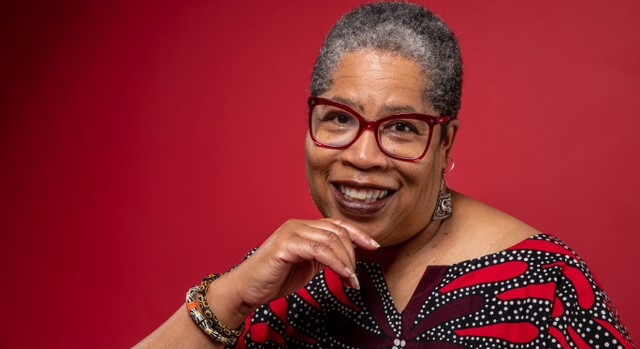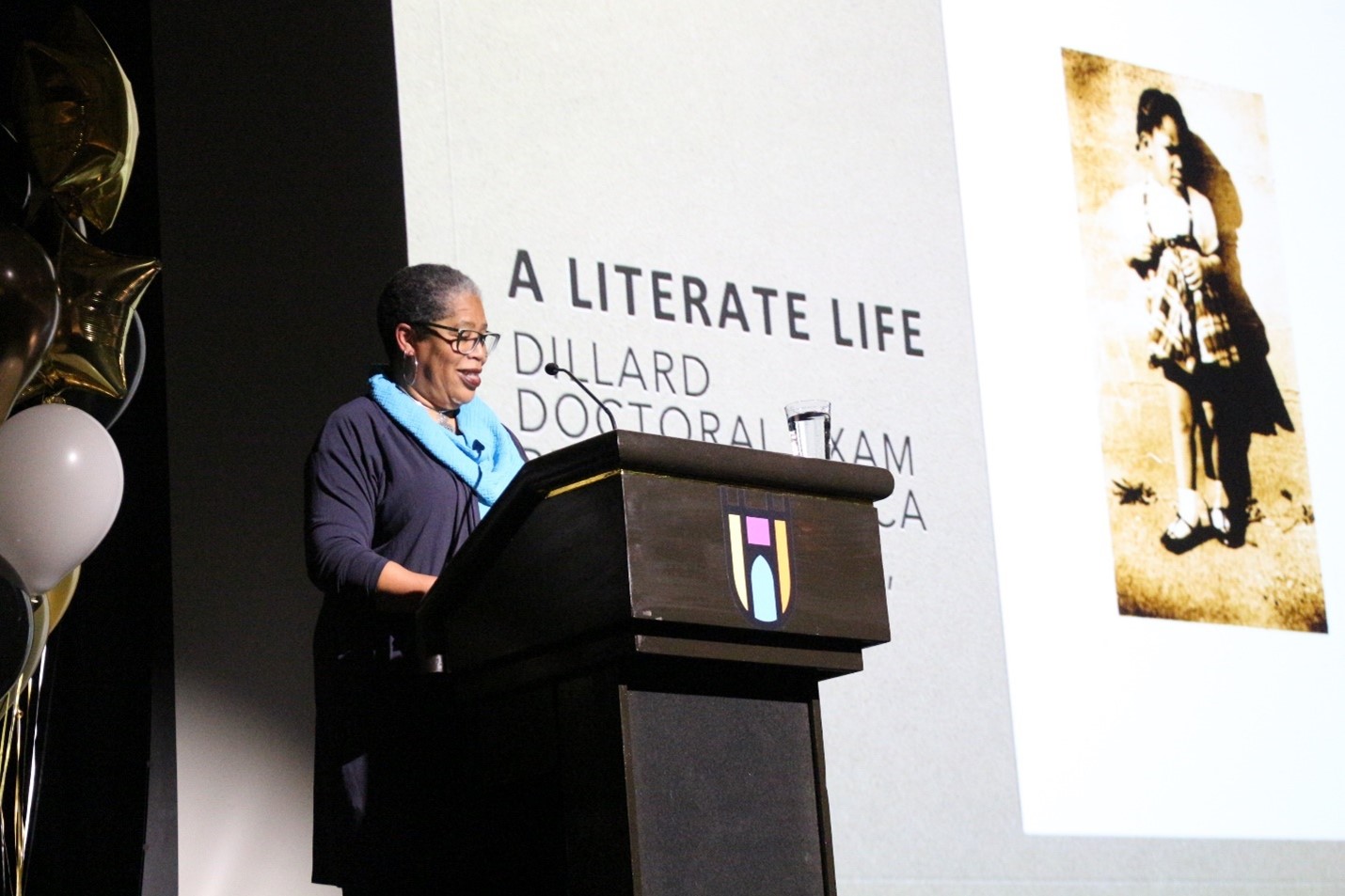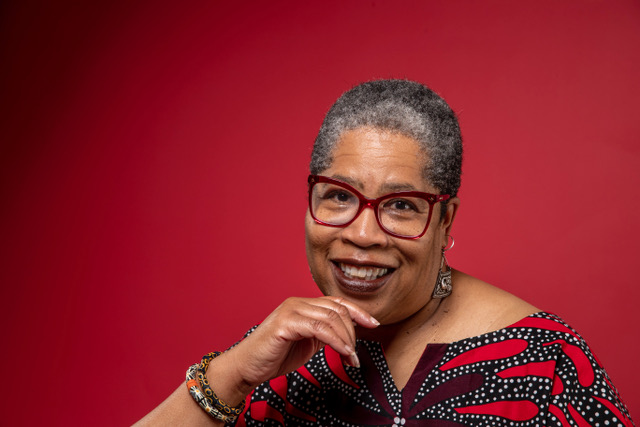
Towards Beloved Community: A Possibility That Is Education for the Public Good
In celebration of the U of R’s 50th Anniversary, the Faculty of Education is pleased to host a lecture series bringing together thought leaders, academics, students, and community members to discuss the possibilities of education.
In the keynote speech, Dr. Cynthia B. Dillard, the Dean of the College of Education at Seattle University, introduces the concept of “covenants in education,” emphasizing the need for new agreements that recognize and address systemic racism and marginalization. She shares her personal stories illustrating the impact of educational experiences on Black identities.
Dr. Dillard talks about the Public Education and Beloved Community (PEDC) initiative that she is leading at Seattle University. Striving to create equitable educational environments that nurture the potential of all students, the initiative seeks to foster meaningful relationships and build community capacity among educators while acknowledging the unique experiences of marginalized groups.
Dr. Dillard’s full speech:
Dr. Cynthia B. Dillard (Nana Mansa II of Mpeasem, Ghana, West Africa) is Dean of the College of Education at Seattle University. Her scholarly research interests include critical teacher education, spirituality in education, and African/African American feminist studies. Beyond numerous published articles, book chapters, and scholarly presentations across the globe, two of her books, On Spiritual Strivings: Transforming an African American Woman’s Academic Life (SUNY Press, 2006) and Learning to (Re)member the Things We’ve Learned to Forget: Endarkened Feminisms, Spirituality and the Sacred Nature of Research (Peter Lang, 2012) were selected as Critics’ Choice Book Award winners by the American Educational Studies Association (AESA). Dr. Dillard is a visionary leader who continues to make impacts in education across the state of Washington, the Pacific Northwest, the United States, and the world.

“Our well-being and audacious freedom are a mutual one between young and old, so we need these new covenants with young people in our nation and in our schools - promises that would invite a whole different way of being together in our quest for equity.” – Dr. Cynthia Dillard, Dean of the College of Education, Seattle University
Dr. Cynthia Dillard opens her speech by introducing the concept of “covenants in education.” She emphasizes the importance of truth-telling in education and the covenant educators make. The notion of “covenant” often implies sacred agreements in religious contexts, but here it refers to the informal yet significant agreements we make regarding our roles as educators.
Dr. Dillard cites James Baldwin’s essay, “A Talk to Teachers”:
“I decided very early that some mistake had been made somewhere. I was not a “n-word” even though you called me one. But if I was a “n-word” in your eyes, there was something about you — there was something you needed. I had to realize when I was very young that I was none of those things I was told I was. I was not, for example, happy. I never touched a watermelon for all kinds of reasons that had been invented by white people, and I knew enough about life by this time to understand that whatever you invent, whatever you project, is you! So, where we are now is that a whole country of people believes I’m a “n-word” and I don’t, and the battles on! Because if I am not what I’ve been told I am, then it means that you’re not what you thought you were either! And that is the crisis.”

Dr. Dillard argues that “We need new covenants, new agreements and relationships in our teacher education institutions and professions, and our own minds and hearts as part of these communities, in order to unpack Baldwin's righteous claim. Diversity should not rest solely on the shoulders of marginalized individuals; it must be a shared endeavour.”
Dr. Dillard posts several questions that deserve our attention as educators:
- How would life have been different if the little Black girl had numerous representations of Blackness in her life?
- How might she have learned to love reading as a space of possibility and freedom?
- How might her struggle for identity have been enhanced in her education if she could have seen herself in the instructional materials and in the experiences of schooling? If she hadn’t been learning for identities and humanity that wasn't hers, what could she have learned from those who were interested in her whole person?
To explore the possibilities that lie ahead for education, Dr. Dillard is leading an initiative at Seattle University - the Public Education and Beloved Community (PEDC). This initiative is grounded in the mission of providing equitable education that recognizes and nurtures the unique identities of all students.
Dr. Dillard closes her speech by calling on educators to commit to nurturing the goodness that might alleviate continued suffering for others and to create space for voice, power, and choice for young people that we work with, as well as for ourselves, where education of our whole selves is possible. “Our well-being and audacious freedom are a mutual one between young and old, so we need these new covenants with young people in our nation and in our schools - promises that would invite a whole different way of being together in our quest for equity,” says Dr. Dillard.